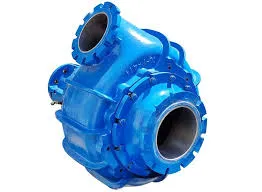Occitan
- Afrikaans
- Albanian
- Amharic
- Arabic
- Armenian
- Azerbaijani
- Basque
- Belarusian
- Bengali
- Bosnian
- Bulgarian
- Catalan
- Cebuano
- Corsican
- Croatian
- Czech
- Danish
- Dutch
- English
- Esperanto
- Estonian
- Finnish
- French
- Frisian
- Galician
- Georgian
- German
- Greek
- Gujarati
- Haitian Creole
- hausa
- hawaiian
- Hebrew
- Hindi
- Miao
- Hungarian
- Icelandic
- igbo
- Indonesian
- irish
- Italian
- Japanese
- Javanese
- Kannada
- kazakh
- Khmer
- Rwandese
- Korean
- Kurdish
- Kyrgyz
- Lao
- Latin
- Latvian
- Lithuanian
- Luxembourgish
- Macedonian
- Malgashi
- Malay
- Malayalam
- Maltese
- Maori
- Marathi
- Mongolian
- Myanmar
- Nepali
- Norwegian
- Norwegian
- Occitan
- Pashto
- Persian
- Polish
- Portuguese
- Punjabi
- Romanian
- Russian
- Samoan
- Scottish Gaelic
- Serbian
- Sesotho
- Shona
- Sindhi
- Sinhala
- Slovak
- Slovenian
- Somali
- Spanish
- Sundanese
- Swahili
- Swedish
- Tagalog
- Tajik
- Tamil
- Tatar
- Telugu
- Thai
- Turkish
- Turkmen
- Ukrainian
- Urdu
- Uighur
- Uzbek
- Vietnamese
- Welsh
- Bantu
- Yiddish
- Yoruba
- Zulu
Telephone: +86 13120555503
Email: frank@cypump.com
Aug . 08, 2024 05:00 Back to list
Efficient Solutions for Managing Wastewater with Advanced Toilet Sewage Pump Systems for Homes and Businesses
The Essential Role of Toilet Sewage Pumps
Toilet sewage pumps play a crucial role in modern sanitation systems, particularly in areas where gravity drainage is not an option. These specialized pumps are designed to efficiently transport sewage and waste from toilets to the municipal sewer or septic systems, ensuring hygiene and preventing potential health hazards.
Understanding Toilet Sewage Pumps
Toilet sewage pumps are typically submersible devices that work by grinding and pumping waste material. They are necessary in situations where the toilet is installed below the level of the municipal sewer line, making it impossible for waste to flow naturally using gravity. For instance, in basements or lower-level bathrooms, these pumps facilitate the efficient removal of waste, thus keeping the environment clean and sanitary.
These pumps consist of several critical components, including a motor, impeller, and grinding mechanism. The motor powers the pump, while the impeller moves the waste fluid through the system. The grinding mechanism breaks down solid waste and toilet paper into smaller particles, allowing for smooth transportation through the pipes. This functionality is essential, as larger particles could clog the plumbing system, leading to costly repairs and sanitation issues.
Installation and Maintenance
The installation of a toilet sewage pump can involve some complexities, especially when integrating it into an existing plumbing system
. It is typically recommended that this task be handled by a professional plumber to ensure proper configuration and compliance with local plumbing codes. Factors such as pump size, power requirements, and plumbing layout need to be considered during the installation process.toilet sewage pump

Maintenance of the sewage pump is equally important to ensure its longevity and reliable performance. Regular checks should be performed to monitor the pump’s operation and identify any potential issues. This can include inspecting the power supply, checking for blockages, and cleaning the pump and its components. Additionally, it is vital to avoid flushing non-degradable items, such as wipes or feminine hygiene products, as these can lead to clogging and pump failures.
The Importance of Toilet Sewage Pumps in Public Health
Toilet sewage pumps contribute significantly to public health by mitigating the risks associated with untreated sewage. Improper waste management can lead to serious health hazards, including the spread of diseases and contamination of water sources. By ensuring that waste is efficiently transported to treatment facilities, these pumps help to maintain a clean and safe environment.
Moreover, as urban populations continue to grow, the need for effective sewage management solutions becomes increasingly important. Toilet sewage pumps are essential in adapting to urban challenges, as they allow for the construction of bathrooms in locations that would otherwise be unsuitable for traditional plumbing. This adaptability is critical in promoting sanitation and hygiene, particularly in developing regions where access to clean facilities is limited.
Conclusion
In conclusion, toilet sewage pumps are a vital component of modern sanitation infrastructure, playing an essential role in waste management and public health. Their ability to transport sewage efficiently from lower-level bathrooms to treatment systems enhances hygiene in urban settings and promotes a cleaner environment. Regular maintenance and responsible usage are crucial to ensure these pumps operate effectively, thereby safeguarding public health and contributing to the overall efficiency of sanitation systems. As we move towards more sustainable urban living, the role of toilet sewage pumps will undoubtedly remain significant in our quest for improved sanitation solutions.
-
Heavy-Duty Mining Sludge Pumps - Wear-Resistant Slurry Handling
NewsAug.02,2025
-
Horizontal Split Case Pump with GPT-4 Turbo | High Efficiency
NewsAug.01,2025
-
ISG Series Pipeline Pump - Chi Yuan Pumps | High Efficiency, Durable Design
NewsAug.01,2025
-
Advanced Flue Gas Desulfurization Pump with GPT-4 Turbo | Durable & Efficient
NewsJul.31,2025
-
ISG Series Vertical Pipeline Pump - Chi Yuan Pumps | Advanced Hydraulic Design&Durable Construction
NewsJul.31,2025
-
ISG Series Vertical Pipeline Pump - Chi Yuan Pumps | Energy Efficient & Low Noise
NewsJul.31,2025










